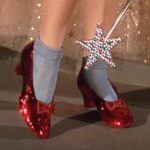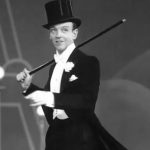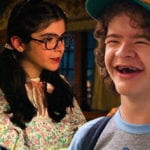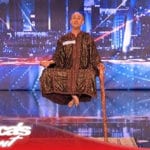 Technology
Technology  Technology
Technology  Misconceptions
Misconceptions 10 Hilarious (and Totally Wrong) Misconceptions About Childbirth
 Weird Stuff
Weird Stuff 10 Warning Labels That Exist Because Someone Actually Tried It
 Health
Health Ten Confounding New Inventions from the World of Biomedicine
 Creepy
Creepy 10 Death Superstitions That Will Give You the Creeps
 Movies and TV
Movies and TV 10 Movies That Get Elite Jobs Right, According to Experts
 Weird Stuff
Weird Stuff 10 Times Real Laws Were Based on Bizarre Hypotheticals
 Animals
Animals 10 Inspiring Tales of Horses Being Human
 Mysteries
Mysteries Top 10 Haunting Facts About the Ghost Ship MV Alta
 History
History 10 Surprising Stories About the Texas Rangers
 Technology
Technology 10 Awesome Upgrades to Common Household Items
 Misconceptions
Misconceptions 10 Hilarious (and Totally Wrong) Misconceptions About Childbirth
 Weird Stuff
Weird Stuff 10 Warning Labels That Exist Because Someone Actually Tried It
Who's Behind Listverse?

Jamie Frater
Head Editor
Jamie founded Listverse due to an insatiable desire to share fascinating, obscure, and bizarre facts. He has been a guest speaker on numerous national radio and television stations and is a five time published author.
More About Us Health
Health Ten Confounding New Inventions from the World of Biomedicine
 Creepy
Creepy 10 Death Superstitions That Will Give You the Creeps
 Movies and TV
Movies and TV 10 Movies That Get Elite Jobs Right, According to Experts
 Weird Stuff
Weird Stuff 10 Times Real Laws Were Based on Bizarre Hypotheticals
 Animals
Animals 10 Inspiring Tales of Horses Being Human
 Mysteries
Mysteries Top 10 Haunting Facts About the Ghost Ship MV Alta
 History
History 10 Surprising Stories About the Texas Rangers
10 Unforgettable Oscar Moments
With surprising wins and horrific mistakes, the Academy Awards are always a show to remember. The Oscars have graced the silver screen for decades, showcasing not only the finest achievements in cinema but also unforgettable moments etched into entertainment history.
From tearful speeches that resonate with timeless emotion to unexpected wins that defy the odds, the Academy Awards have provided us with iconic fuel for pop culture. Join us as we relive the triumphs, the flops, and the heartwarming stories that have solidified the Oscars as a celebration of cinematic excellence.
Related: 10 People Stripped Of Honors And Awards
10 Samuel L. Jackson Oscar Loss
If there’s one actor known for refusing to curb his language, it’s Samuel L. Jackson. And that’s part of why we love him. At the 1995 Oscars, Jackson was nominated for Best Supporting Actor in Pulp Fiction. Let’s be honest; we all thought he would take home the Oscar this time. But in a surprise twist, Martin Landau won for his role in Ed Wood.
And apparently, Jackson was just as surprised as we were. The camera pans to him, and instead of the gracious rejection nod that most actors rely on, you can see him saying, “Aw, sh—t.”
And despite an incredible career that included films like Star Wars, The Avengers, and Shaft, that was the closest he came to winning an Oscar. At least it was until 2022 when he was presented with an honorary one by Denzel Washington for lifetime achievement. And we only have one thing to say.
It’s about f***in’ time.
9 John Travolta Can’t Say Idina Menzel
John Travolta is a national treasure. But for a long-time actor, you’d think he’d be able to read a name or two correctly off the teleprompter. In 2014, Travolta made what is possibly the most memorable slip-up in Oscar history.
As he announced Menzel’s performance of “Let It Go” from Disney’s Frozen, he famously called her “Adele Dazeem.”
Not even close, John. Not even close.
And poor Idina had to get up and sing after that! Talk about professionalism. Luckily, Menzel is a great sport. She wasn’t offended by the new nickname and even returned the following year to poke a little fun at Travolta herself. At the 2015 show, they presented an Oscar together, and Menzel called Travolta “Glom Gazingo.”
Apparently, Menzel took Elsa’s advice and learned to let it go. She even told Today that Travolta was easy to forgive, sending her repeated apologies and flowers. Now the two are linked forever in Hollywood history.
8 Laurence Olivier’s Great Return
In 1985, Laurence Olivier presented the Best Picture award at The 57th Annual Academy Awards, held at the Dorothy Chandler Pavilion in Los Angeles, California. With a touching introduction by Jack Lemmon and a resounding applause, Olivier was overwhelmed by the generous welcome. Olivier presented the Best Picture award, which went to Amadeus, a film directed by Milos Forman.
In all the excitement during the presentation of the Best Picture award, Olivier forgot to announce the other four films in contention and simply opened the envelope and said, Amadeus!>> The error was corrected by the film’s producer, Saul Zaentz, who named the other four nominees in his acceptance speech.
Amadeus won a total of eight awards that night, including Best Picture, Best Director, and Best Actor. While Olivier’s minor blunder will go down in Oscar history, he’s also one star who’s famous enough to break the rules a little.
7 Greer Garson’s Long Acceptance Speech
Greer Garson’s acceptance speech at the Oscars in 1943 for her role in Mrs. Miniver is famous for being the longest in the history of the Academy Awards. The movie was a romantic war drama directed by William Wyle.
Garson’s speech was unexpected and unprepared, as she had not expected to win and had not written a speech. Most actors are concerned about forgetting to thank someone important. But, apparently, Garson’s memory is pretty good. She thanked many people, including her colleagues, the Academy, and the people of the United States and Great Britain.
It makes sense that she was so caught off guard since she was only the 15th actor in the history of Hollywood to take home an Oscar. Her acceptance speech lasted for five minutes and 30 seconds, according to Guinness World Records. Garson’s speech was so long that the Academy Awards instituted a time limit for acceptance speeches in the future. Today’s winners are asked to keep their speeches to 45 seconds.
6 Alfred Hitchcock Keeps It Short
And then there’s the exact opposite of Greer Garson. Accepting the Irving G. Thalberg Memorial Award in 1968, Alfred Hitchcock gave a speech so short you would have missed it if you blinked. Known for his suspenseful films, Hitchcock famously delivered a speech consisting of only five words. After making his way across the stage, he said, “Thank you. Very much indeed.”
Hitchcock’s concise speech perfectly encapsulated his style and left a lasting impression. Despite the brevity of his words, he effectively expressed his gratitude and appreciation. The simplicity and directness of his acceptance speech aligned with his filmmaking approach, where he often relied on visual storytelling and minimal dialogue to create tension and suspense.
Hitchcock had previously been nominated for Best Director on five separate occasions before receiving the Thalberg Memorial Award. His impact on the film industry and his contributions to the art of suspense continue to be celebrated to this day.
5 Christopher Reeves Makes an Emotional Appearance
Most well-known for his role as Superman, Christopher Reeve made a memorable appearance at the 68th Annual Academy Awards in 1996. The appearance was less than a year after Reeve’s accident that left him paralyzed from the neck down.
Reeve’s appearance was a surprise, and the Academy Awards kept it a secret to maximize the dramatic impact of his appearance. They also chose to keep Reeve’s appearance a secret in case a physical issue cropped up, allowing him to quietly back out.
Reeve received a two-minute standing ovation when he appeared on stage to introduce a film montage recognizing how Hollywood has tackled social issues. Reeve’s appearance was accompanied by an inspirational plea, where he spoke about the importance of supporting medical research and finding a cure for paralysis.
Despite his physical limitations, Reeve continued to be an advocate for medical research and support for those with disabilities. His appearance at the 1996 Academy Awards was a powerful moment that inspired many and brought attention to important social and medical issues.
4 Leonardo DiCaprio Finally Wins
Leonardo DiCaprio has been nominated for several Academy Awards throughout his career, and he won his first and only Oscar in 2016.
DiCaprio was first nominated for an Academy Award in 1994 for Best Supporting Actor for his role in What’s Eating Gilbert Grape. He was later nominated for Best Actor for his roles in The Aviator (2004), Blood Diamond (2006), and The Wolf of Wall Street (2013).
Finally, in 2016, DiCaprio won the Best Actor award for his performance in The Revenant, a film directed by Alejandro González Iñárritu. DiCaprio’s performance in the film was praised for its physicality and intensity, particularly when his character fights a bear. The win came after five previous nominations, and many people believed it was long overdue.
In addition to his Oscar win, DiCaprio has won numerous other awards throughout his career, including Golden Globe Awards, BAFTA Awards, and Screen Actors Guild Awards. But despite the many Oscar snubs, Dicaprio’s contributions to the film industry and his performances in a variety of roles have solidified his place as one of Hollywood’s most talented actors.
3 Marlon Brando Sends Sacheen Littlefeather
In 1973, there was definitely an upset at the 45th Academy Awards as Marlon Brando declined his Best Actor award for his role in The Godfather. Brando boycotted the ceremony as a protest against Hollywood’s portrayal of Native Americans and to draw attention to the standoff at Wounded Knee.
Instead of appearing himself, he sent Sacheen Littlefeather, an Apache activist and actress. When they called out Brando’s win, Littlefeather took the stage wearing a traditional Apache dress and moccasins. She held an abstaining palm to the Oscar statuette and identified herself as Apache and as the president of the National Native American Affirmative Image Committee. Littlefeather explained Brando’s reasons for declining the award, which included his concerns about the treatment of Native Americans in the film industry.
The audience’s response to Brando’s boycott was divided, with some booing and others applauding. Littlefeather’s appearance at the Oscars was met with backlash and criticism, with some questioning her Native heritage and claiming she rented her costume for the ceremony.
Despite the controversy, Littlefeather’s speech remains a significant moment in Oscar history, highlighting the intersection of activism and the film industry.
2 The First Black Person to Win an Oscar
Hattie McDaniel was the first Black person to win an Oscar. She won the Best Supporting Actress award for her role as Mammy in the 1939 epic Gone with the Wind. McDaniel’s win was a historic moment, but it was not without controversy.
The ceremony was held at a segregated hotel, and McDaniel was seated at a small table against a far wall, away from the rest of the cast and crew of Gone with the Wind. McDaniel’s career was also criticized by some for perpetuating negative stereotypes of Black people, as she often played roles as a maid or servant.
Despite these challenges, McDaniel’s win paved the way for future Black actors and actresses to be recognized by the Academy. But it would take nearly a quarter century before another Black actor, Sidney Poitier, won an Oscar for his role in Lilies of the Field in 1963.
1 Rob Lowe’s Snow White Fail
You know Rob Lowe as an ’80s heartthrob. And you know him as literally the most optimistic boss from Parks and Recreation. But have you heard about his horrific fairy-tale-themed Oscar fail?
In 1989, Rob Lowe performed a parody version of “Proud Mary” with Snow White (played by actress Eileen Bowman) in the opening number of the 61st Academy Awards. For the duration of the performance, he very clearly wants to “get it on” with Snow White. The whole thing is just plain creepy. Disney sued for copyright infringement and dilution of business reputation, and rightfully so.
Lowe said yes to doing the number partly because he was a huge fan of composer Marvin Hamlisch, but it was definitely a mistake. During the performance, he realized that the bit was going south when he saw audience members whispering expletives. Allan Carr, the producer of the ceremony, never worked as a producer again, and it took a long while before Lowe bounced back.








